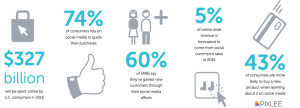— October 8, 2018
Entrepreneurship is a powerful economic engine for the United States and the global economy. And it’s popular. According to the 2016 census, nearly 90% of employers in the United States were small firms with fewer than 20 employees. These startups and small businesses find ways to stay afloat in volatile markets by providing the services that consumers and other businesses need.
I have nothing but admiration and respect for someone that is willing to plant their flag and go into business. But, there’s an alarming trend in the United States and abroad – the 1099 underclass. Many of these contract workers are being convinced to invest their entrepreneurial passions into a turn-key platform. Examples include rideshare companies and online freelancing sites. We need to better define what entrepreneurship means, and create a reasonable boundary between a side-hustle and a real startup.
Contract workers are kidding themselves if they think they’re entrepreneurs.
If you get fired up after an episode of Shark Tank, resist the urge to dive head-first into the contract workforce economy. Need fast cash? Sure, pick-up a few strangers and take them where they need to go. But entrepreneurship means something more than becoming a contractor on an app.
You need to understand that your time spent with a gig-economy platform will:
- Build the platform’s brand, not yours.
- Force you to comply with their vision for how you operate within their ecosystem.
- Limit your earning potential because they control how much you can charge, what percentage you get to keep, and when you get paid.
- Require you to shoulder the costs and potential risks associated with using your personal property to service their customers.
Companies like Uber leverage entrepreneurial desire to fill their labor pool.
The gig economy platforms know that Americans want to be entrepreneurs. Two-thirds of millennials are captivated by the idea of launching their own startup and firing their boss. That’s one reason platforms like Uber use the catchphrase – Be your own boss! – in their advertising. A google image search for Uber ads for drivers will return countless results that imply you are chasing your entrepreneurial dreams by joining their platform and deciding for yourself how much you want to earn.
Joining a contract workforce is wantrepreneurship. It’s right for some people, but it’s a horrible long-term solution for those that strive to become successful entrepreneurs.
Great entrepreneurs run the numbers before diving in.
I wholeheartedly believe that Americans should be free to pursue their dreams on their terms. For some people, the gig economy is a godsend. To know if it’s right for you, you need to step back and run the numbers – constantly!
I’ve said it before and I’ll say it til you die, if you don’t know your numbers, your idea is as good as dead! pic.twitter.com/qIin0MsmOO
— Kevin O’Leary (@kevinolearytv) July 10, 2018
Kevin O’Leary (a.k.a. Mr. Wonderful) grills the entrepreneurs that step onto the carpet in Shark Tank. He wants to know their numbers so that he can make an informed decision. Here are the numbers prospective gig economy workers need to pay attention to:
- What commissions and fees are charged by the platform?
- How much will your personal property depreciate in value as a result of accepting work on the platform?
- What additional maintenance costs are associated with the work you’ll be doing?
- How much downtime does the average worker experience between assignments?
- Are the hours consistent, or do you need to split up your working hours to meet market demands and avoid excessive downtime?
- If you’re going to compete for work on a platform like Fiverr, how much will you have to discount your services in order to be competitive?
- How much operating capital do you need in order to survive the gap between providing service and getting paid for your work?
- How will you cover the benefits that a traditional employer would provide – healthcare, retirement, worker’s comp, vacation time, sick leave, etc.?
Let’s use Uber as an example. Drivers that fail to run the numbers are left homeless. The costs of operating a vehicle are huge – especially when you’re driving hundreds of miles a day.
The gig economy is a valuable training tool for baby entrepreneurs, but it needs to be a temporary, transitional tool.
I personally used freelancing platform Upwork (formerly elance) to jumpstart my career as a ghostwriter and Editor. It was a stepping stone – a chance for me to showcase my skills and earn verifiable, public reviews of my work. Within a year I was ranked in the top 1% of freelance writers on elance.
My public profile provided a backstop for my pitches to potential clients outside of the platform. Upwork gave me the resources I needed, but it was a horrible long-term fit. When I was done being a wantrepreneur, I struck out on my own and used the lessons/skills I acquired to become a full-fledged entrepreneur.
We need to have an honest conversation in America about what role the contract workforce should play in our labor markets. Yes, they’re powerful tools when applied properly. But, they also represent a major threat to the financial security of American families.
I can’t imagine trying to support a family while working on a gig economy platform. The hours would be unending for anemic pay. But, if you can break free from the walled ecosystems and build your own brand, the American dream is there for the taking.
Business & Finance Articles on Business 2 Community
(64)







